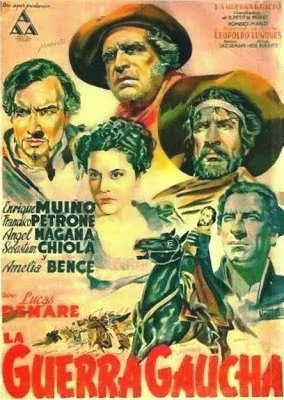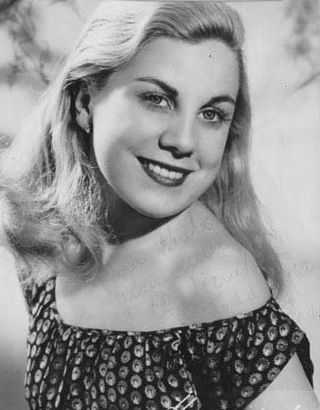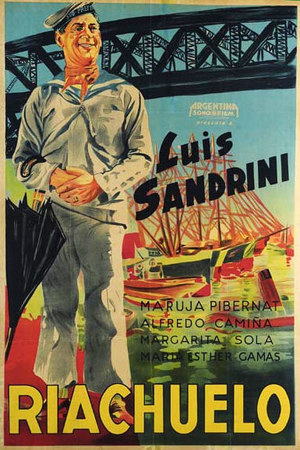Contents
| |||||
| Decades: | |||||
|---|---|---|---|---|---|
| See also: | Other events of 1934 List of years in Argentina | ||||
Events in the year 1934 in Argentina .
| |||||
| Decades: | |||||
|---|---|---|---|---|---|
| See also: | Other events of 1934 List of years in Argentina | ||||
Events in the year 1934 in Argentina .

Buenos Aires, officially the Buenos Aires Province, is the largest and most populous Argentine province. It takes its name from the city of Buenos Aires, the capital of the country, which used to be part of the province and the province's capital until it was federalized in 1880. Since then, in spite of bearing the same name, the province does not include Buenos Aires city, though it does include all other parts of the Greater Buenos Aires metropolitan area. The capital of the province is the city of La Plata, founded in 1882.

The following is an alphabetical list of topics related to the Argentina.

Cinema of Argentina refers to the film industry based in Argentina. The Argentine cinema comprises the art of film and creative movies made within the nation of Argentina or by Argentine filmmakers abroad.

Mecha Ortiz was an Argentine actress who appeared in films between 1937 and 1981, during the Golden Age of Argentine cinema. At the 1944 Argentine Film Critics Association Awards, Ortiz won the Silver Condor Award for Best Actress for her performance in Safo, historia de una pasión (1943), and won it again in 1946 for her performance in El canto del cisne (1945). She was known as the Argentine Greta Garbo and for playing mysterious characters, who suffered by past misfortunes in love, mental disorders, or forbidden love. Safo, historia de una pasión was the first erotic Argentine film, though there was no nudity. She also played in the first film in which a woman struck a man and the first film with a lesbian romance. In 1981, she was awarded the Grand Prize for actresses from the National Endowment for the Arts.

Laura Ana "Tita" Merello was an Argentine film actress, tango dancer and singer of the Golden Age of Argentine cinema. In her six decades in Argentine entertainment, at the time of her death, she had filmed over thirty movies, premiered twenty plays, had nine television appearances, completed three radio series and had had countless appearances in print media. She was one of the singers who emerged in the 1920s along with Azucena Maizani, Libertad Lamarque, Ada Falcón, and Rosita Quiroga, who created the female voices of tango. She was primarily remembered for the songs "Se dice de mí" and "La milonga y yo".

Such Is Life is a 1939 Argentine melodrama film directed by Francisco Múgica and starring Enrique Muiño, Elías Alippi, Enrique Serrano and Sabina Olmos. It is one of the most celebrated films of the Golden Age of Argentine cinema. Based on a successful play of the same title by Nicolás de las Llanderas and Arnaldo Malfatti, it focuses on the history of a bourgeois family from Buenos Aires from the beginning of the 20th century to the present. A Mexican remake Orange Blossom for Your Wedding was released in 1950.

The Gaucho War is a 1942 Argentine historical drama and epic film directed by Lucas Demare and starring Enrique Muiño, Francisco Petrone, Ángel Magaña, and Amelia Bence. It is one of the most celebrated works of the Golden Age of Argentine cinema. The film's script, written by Homero Manzi and Ulyses Petit de Murat, is based on the novel by Leopoldo Lugones published in 1905. The film premiered in Buenos Aires on November 20, 1942 and is considered by critics of Argentine cinema to be one of the most successful films in history.

Alita Blanca Barchigia, better known as Alita Román, was an Argentine film actress of the Golden Age of Argentine cinema.

The Belgrano Sur line is an Argentine 1,000 mmmetre gauge commuter rail service in the Greater Buenos Aires area, currently operated by state-owned enterprise Trenes Argentinos. The Belgrano Sur runs over tracks and through stations built by the Franco–Belgian-owned Compañía General de Buenos Aires and British Midland companies at the beginning of the 20th century.

The Argentina Bicentennial was a series of ceremonies, festivals, and observances celebrated on May 25, 2010, and throughout the year. They commemorated the 200th anniversary of the May Revolution, a sequence of historical events that led to the Viceroy Baltasar Hidalgo de Cisneros being ousted from office and replaced with the Primera Junta, the first national government.

Autovía 2 Juan Manuel Fangio is an Argentine dual carriageway, which runs from Buenos Aires to Mar del Plata. The road was a National Route until 1990 when it was transferred to the Government of Buenos Aires Province. The Autovía 2 extends from the junction of Provincial Routes 1 and 36 and National Route A004, just on the traffic circle "Juan María Gutiérrez", which is the limit of Berazategui and Florencio Varela districts.
The 1961 Campeonato Argentino de Rugby was won by Mar del Plata who defeated Rosario in the final. There were several changes in this tournament:

Operadora Ferroviaria Sociedad del Estado (SOFSE), trading as Trenes Argentinos Operaciones, is an Argentine state-owned company created in 2008 to operate passenger services in Argentina. It operates as a division of Ferrocarriles Argentinos S.E..

Safo, historia de una pasión is a 1943 Argentine erotic melodrama film directed by Carlos Hugo Christensen and starring Mecha Ortiz and Roberto Escalada, one of the most famous titles from the Golden Age of Argentine cinema. The film is based on the 1884 Alphonse Daudet novel Sappho. At the 1944 Argentine Film Critics Association Awards, Ortiz won the Silver Condor Award for Best Actress for her performance as Selva in the film.
Events in the year 2021 in Argentina.

Aurora Rosa Borrello , better known as Aurora del Mar, was an Argentine film, television, stage and voice actress.
Events in the year 2022 in Argentina.
Naturism in Argentina is the movement supporting the practice of social nudism in the country. It began to be regularly performed in 1934, and it is being practiced nowadays, despite still being a taboo topic in the Argentine society. The most important nudist destinations include Escondida Beach, Querandí Beach, and Eden club in Buenos Aires Province, as well as Yatan Rumi in the Córdoba sierras.

Riachuelo is a 1934 Argentine comedy film directed by Luis Moglia Barth and starring Luis Sandrini as his popular character Berretín. The cast also included Maruja Pibernat, María Esther Gamas, Alfredo Camiña, Margarita Solá, Héctor Calcaño, Froilán Varela and Juan Sarcione. It was the third film produced by Argentina Sono Film, one of the first major film studios in the country, which had inaugurated the sound period and the Golden Age of Argentine cinema the previous year with the release of ¡Tango! The film premiered on 4 July 1934 at the Renacimiento theater in Buenos Aires.

El dependiente is a 1969 Argentine drama film directed by Leonardo Favio and starring Graciela Borges, Walter Vidarte, Fernando Iglesias and Nora Cullen. It is based on the short story of the same name by Jorge Zuhair Jury, Favio's brother and frequent collaborator, with whom he also co-wrote the screenplay alongside Roberto Irigoyen. Set in a small provincial town, the film tells the story of Mr. Fernández, a lonely shop assistant in a hardware store that falls in love with Miss Plasini, a mysterious and isolated woman who lives with her mother. It is the last installment of an unofficial trilogy of films Favio made in the 1960s, after Crónica de un niño solo (1965) and El romance del Aniceto y la Francisca (1967), which have earned him recognition as one of the most important auteurs of Argentine cinema, despite not being so well known outside the country. The film was produced by Leopoldo Torre Nilsson through his company Contracuadro, and was shot in the spring of 1968 in the then small town of Derqui, in the Pilar district of the province of Buenos Aires.